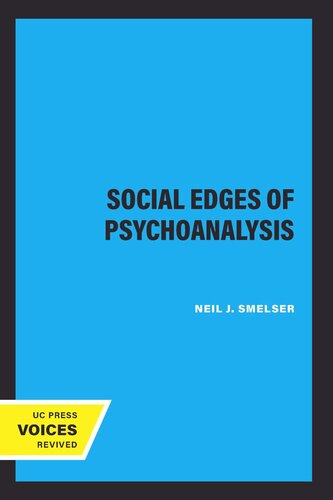

Most ebook files are in PDF format, so you can easily read them using various software such as Foxit Reader or directly on the Google Chrome browser.
Some ebook files are released by publishers in other formats such as .awz, .mobi, .epub, .fb2, etc. You may need to install specific software to read these formats on mobile/PC, such as Calibre.
Please read the tutorial at this link: https://ebookbell.com/faq
We offer FREE conversion to the popular formats you request; however, this may take some time. Therefore, right after payment, please email us, and we will try to provide the service as quickly as possible.
For some exceptional file formats or broken links (if any), please refrain from opening any disputes. Instead, email us first, and we will try to assist within a maximum of 6 hours.
EbookBell Team

4.0
56 reviewsFor several decades the writings of sociologist Neil J. Smelser have won him a vast and admiring audience across several disciplines. Best known for his work on social movements, economic sociology, and British social history, Smelser's psychoanalytic writings are less familiar to his readers. In fact, many people are completely unaware of Smelser's formal psychoanalytic training and ongoing counseling practice. With the publication of The Social Edges of Psychoanalysis, Smelser's thought-provoking essays on psychoanalytic concepts are finally brought together in one book.
Psychoanalytic theory has had an ambivalent relationship with sociology, and these essays explore that ambivalence, providing arguments about how and why psychoanalytic approaches can deepen the sociological perspective. One of Smelser's main tenets is that human social behavior always contains both social-structural and social-psychological elements, and that psychoanalytic theory can bridge these two dimensions of human social life. Many of the issues Smelser addresses—including interdisciplinarity, the macro-micro link in research, masculinity and violence, and affirmative action—have generated considerable scholarly interest.
This collection paves the way for further articulation of the relationship between sociology and psychoanalysis at a time when many sociologists are looking for interdisciplinary links in their work. Presented with clarity and grace, and free of the murkiness often found in both sociological and psychoanalytic writing, Smelser's new book will excite reflection and research on the less visible dynamics of social existence.